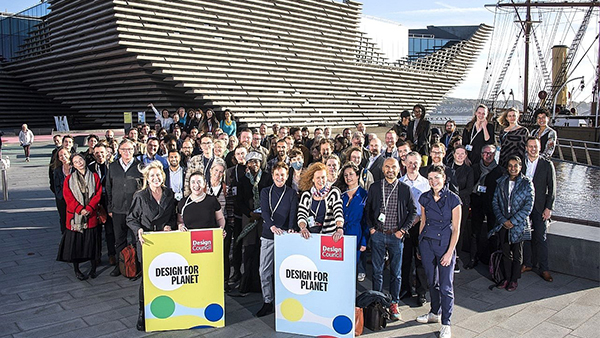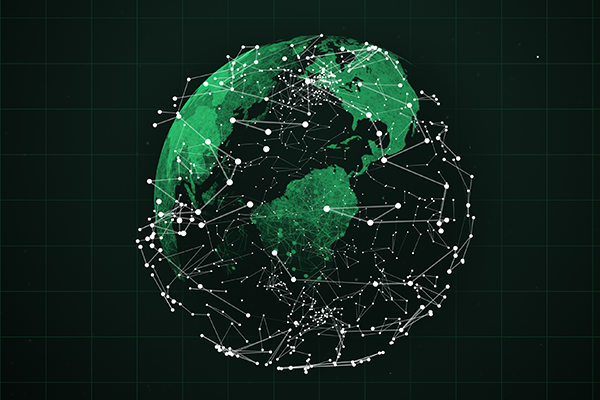Imagine you had a life of relative ease, living in a pastoral world where you ran a small shop that provided a valuable service to your community. Your work afforded you with a decent living without consuming your life. You didn’t have much, but you had what you needed. You respected your peers, and the feeling was mutual. Time spent with friends and family (talking, teaching, cooking, and playing), was something you were able to enjoy in abundance. Life was good.
Find out more about RSA Global
But your contented life was upended by calamity as your community was violently torn apart. Your means of income disappeared, and your focus quickly narrowed to that which was necessary for survival. Your life entered a volatile state of flux—your neighbors suddenly a steady parade of newcomers—and you had no idea when you'd be the next to leave. Your deep sense of community was lost as most long-held ties were severed by dislocation. Sadly, others who hadn’t experienced the same trials condemned and threatened you out of fear.
You eventually found a place where the worst of your struggles might be left behind. Hardened and wary, you began to work to regain a sense of normalcy. But your new circumstances offered little in the form of even the most basic necessities. There wasn’t enough work available, so you were often dependent on others no matter how badly you wanted to earn your keep. And while the worst seemed to be behind you, your new circumstances were still rife with crime, violence, and abuse.
Elsewhere, contests are being held to uplift people who've never experienced the difficulties you survived. But in an unexpected twist, ten people from your “place” will be invited to compete. The odds are stacked against you, but if you win, you’d get to stay and live among your competitors. You'd gain currently unimaginable luxuries like a stable community, a permanent home, and good schools for your kids. And you might even get to take your extended family with you.
This might sound like a bad adaptation of The Hunger Games, but it’s really just thinly-veiled reality. The IOC recently voted to allow top refugee athletes to compete in the Olympics, so Rio’s Parade of Nations will be the first with athletes with no national flag to represent. After the teams of visiting nations have passed, a small group of athletes will lead the host country onto the field. Bound together not by place, nor heritage, but rather their shared adverse circumstances, the first appearance of Team Refugee Olympic Athletes (ROA) promises to be a memorable one. I hope that it doesn't get filed away with the litany of human interest stories common to these events (Look, dear. They're letting the refugees play. Isn't that nice.), and that it instead leads to positive change for the world’s burgeoning refugee populations.
...
I recently watched an interview with Stéphane Rousseau, a lecturer at Thammasat University in Bangkok, Thailand, who has spent years working with refugees in Southeast Asia. Stéphane shared a story that illustrates the difficulty of returning to normalcy that many refugees face. He met a woman at a camp who desperately wanted an abortion. Her doctors were surprised by the request as the pregnancy looked good, was not the result of rape, and the woman’s first two children were entirely healthy. Further, she and her husband were young and of good health, and (aside from the challenges of their temporary living conditions) had no obvious reasons not to bring this child into the world. The expectant mother's response was jarring. She explained that when the bombs started dropping again, she only had two arms with which to carry children as she fled, and she already had two.
I can't get that thought out of my head.
Accelerating displacement has coincided with sluggish economic recovery. But we need to ensure we’re not mistaking rhetorical chaff for factual wheat. Yes, more people are trying to immigrate to places like the EU than in the past, but that increase is dwarfed by the numbers of those who’ve chosen to stay in places adjacent to their homelands. It's estimated that 86% of the world’s 60 million displaced people are living in developing countries. And we must not forget that in the mélange of causes driving displacement, the acts of Western governments—especially military actions—have been no small factor.
And, yes, terrorism is a valid concern. But turning away those in dire need plays into the hands of those who would do us harm. As Indy Johar recently wrote, “We need a politics of kindness to unlock the many not the fear of a few; we need an economy built for hope & possibility not insecurity.” Providing resources for proper vetting, welcoming newcomers, and remaining steadfast in the face of threats is the path forward.
We also need to be cognizant of the increasingly dire circumstances that are driving these trends. The civil war in Syria has driven eleven million people from their homes, and taken the lives of over a quarter of a million people since 2011, a year when the average number of people displaced globally per day was estimated to be 14,200. By 2014, the number had nearly tripled. (At that rate, NYC would empty in under seven months.) In the same timeframe, the total number of displaced people jumped from 42.5 million, up to 59.5 million.
That refugees are being held liable for every ill under the sun is nothing new. Many have long used newcomers as scapegoats for internal issues, while employing divisive language for political gain. Some of those campaigning to lead Britain out of the EU intentionally tapped xenophobic impulses with dangerous rhetoric, while suggesting an influx of immigrants which greatly exaggerated the case.
The EU has so far succeeded in its highest collective goal, avoiding continental war. But as a body politic, it appears fragile. Many would rather scuttle the project than share in current pains. But refugees did not cause the economic problems that Europe is experiencing. Their only “fault” is in asking for help at what seems the worst possible time. (I wonder if they realize their impertinence.) But this ignores the positive economic effects newcomers could bring to an aging Europe, if integration was handled well. Regardless, our humanity dictates that we help those in need, while also helping them find ways to contribute positively to society. Failing to do so would be an abrogation of moral duty.
Monday, 20 June was World Refugee Day, a day in which to “commemorate the strength, courage and perseverance of millions of refugees.” As UN Secretary General Ban Ki-moon recently proclaimed, "Refugees are people like anyone else, like you and me. They led ordinary lives before becoming displaced, and their biggest dream is to be able to live normally again."
As we await the appearance of Team ROA on the grand Olympic stage, please consider joining me in signing UNHCR’s #WithRefugees petition. In August, the IOC will give a few of them one moment in time in which to bring attention to their plight—a chance to light a fire under the cozy masses. Then we’ll see if we’re ready to give them places to call home.
Related articles
-
A design revolution for the climate emergency
Joanna Choukeir
Joanna Choukeir on Design for Planet, the global gathering of designers during COP26, and the changes design must make.
-
US elections: the whole world is watching
Adanna Shallowe
The Caribbean’s experience shows how American policy affects us all.
-
The broader purpose of the environmental movement
Hila Chenzbraun Philipa Duthie
How can environmental movements tackle the climate crisis and social and racial injustice?




Be the first to write a comment
Comments
Please login to post a comment or reply
Don't have an account? Click here to register.